Dog Constipation: What to Do and When to See a Vet

By Evelyn Harcourt
juillet 08, 2025 - 1 min read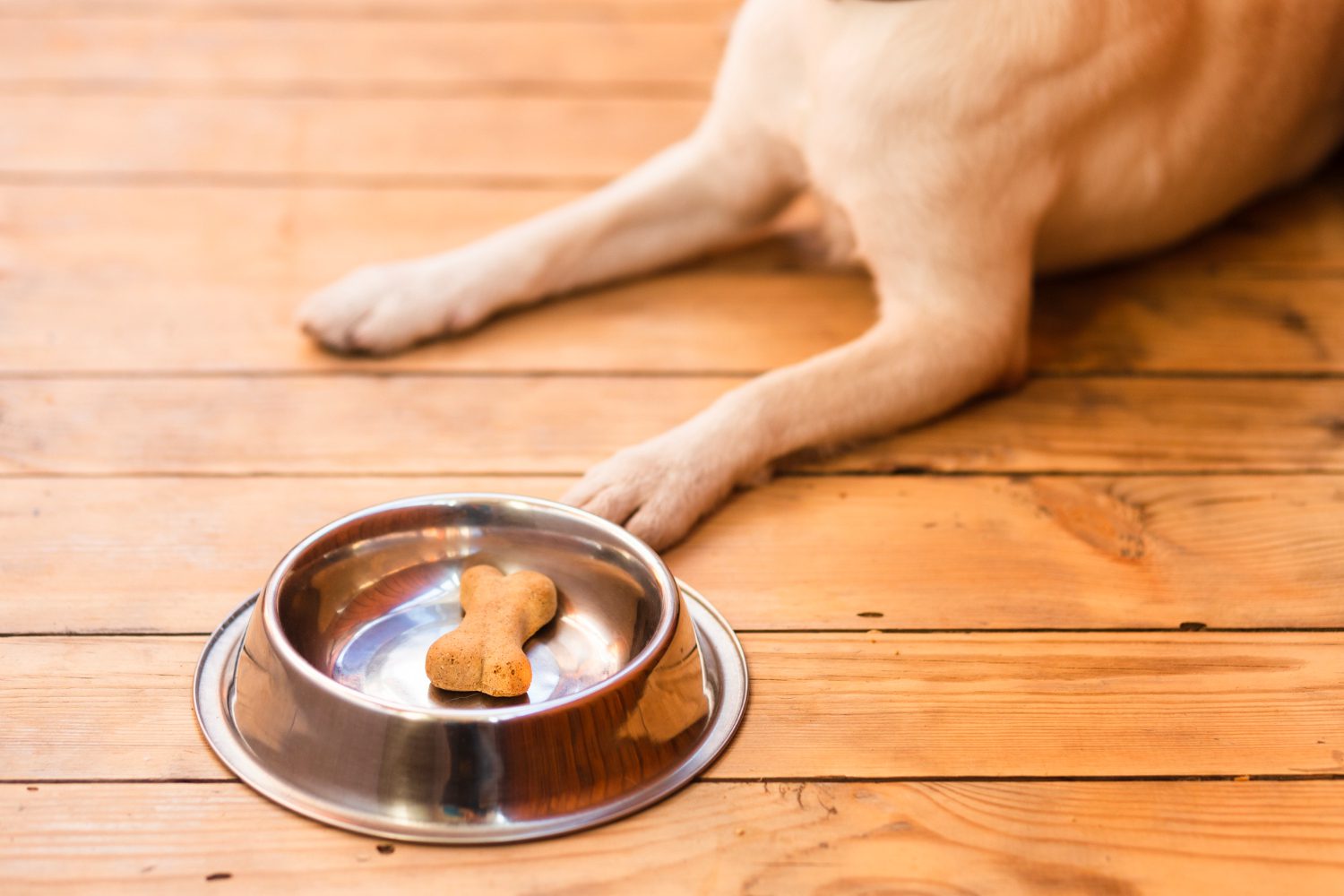
Constipation in dogs is not hugely common, but it is something we see from time to time. Affected dogs pass less poo than usual and may also strain and experience bloating. In a small number of cases, dogs cannot pass any poo at all (obstipation).
This article discusses how to treat mild constipation at home and how a vet will manage more severe cases. We also examine potential complications and how to prevent canine constipation in the future.
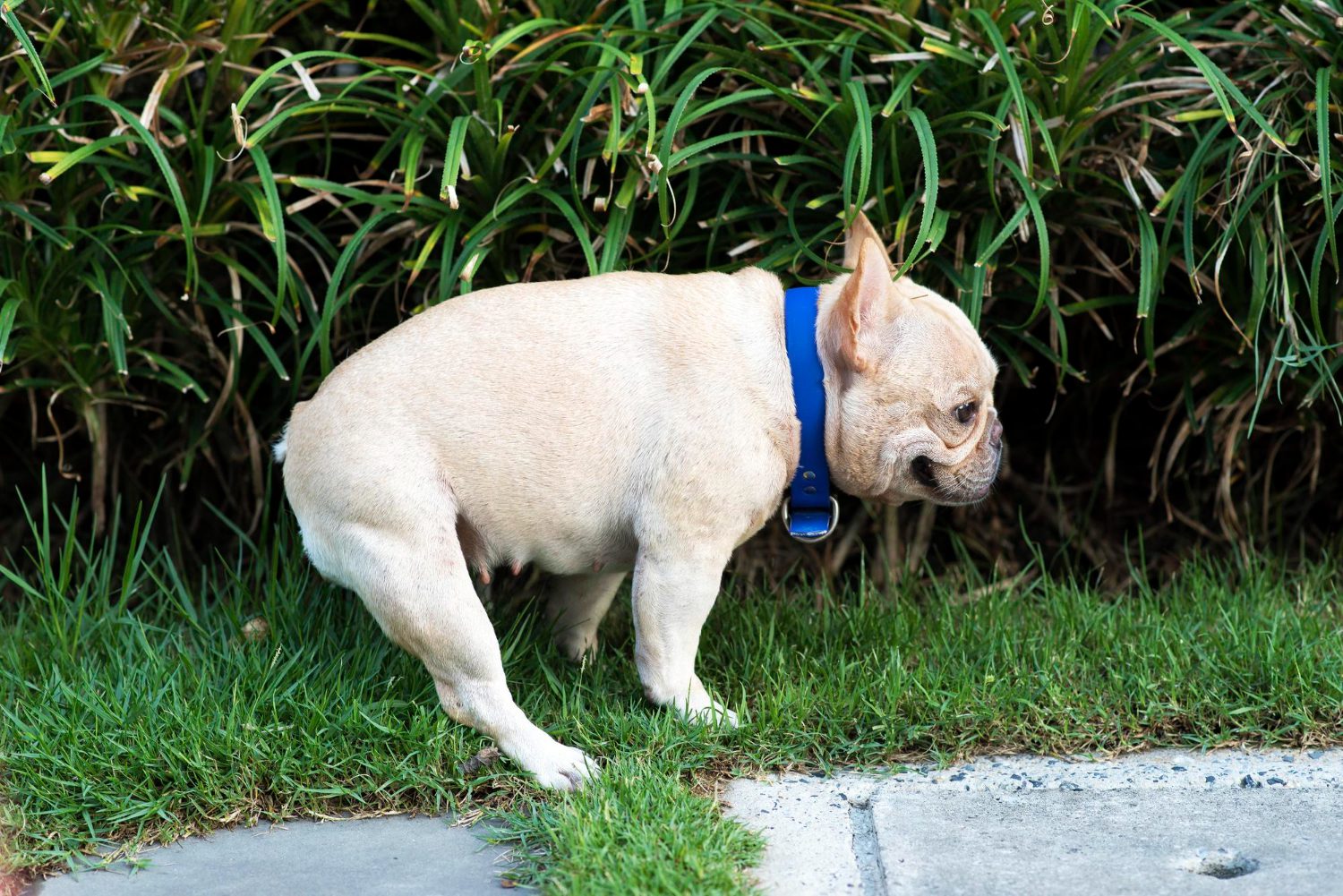
Understanding Dog Constipation
A constipated dog may pass little to no stool. Anything they do produce might be small, hard, and challenging to pass.
What is Dog Constipation?
Constipation is defined as difficult or infrequent passage of faeces, and for most dogs it will be mild and temporary.
Normal Canine Bowel Function
Most dogs pass poo once or twice a day, and a reduced poo output or trouble passing poo can indicate constipation.
How the Colon Works
The colon stores the poo, and when it is not passed and sits there for too long, too much of the water and electrolytes will be absorbed. Dry poo is much more difficult to pass, which further exacerbates the issue.
Common Causes of Dog Constipation
There are many different things that can lead to constipation, and knowing the trigger goes a long way toward determining how to address it successfully.
Dietary Factors
The most common dietary issues we encounter include a lack of fibre and eating inappropriate food (such as large chews or bones).
Foods that are harder to digest can ‘clog’ the intestines, meaning food takes longer to pass and too much fluid is absorbed, making passing poo harder.
Dehydration and Water Intake
When your dog’s body is dehydrated, it will absorb as much water as possible from the colon. This leads to ‘dehydrated’ poo that is hard and difficult to pass. The movement of waste is slowed down, and things can become compacted.
We see this issue most during warm weather. Dogs fed dry diets and those who do not drink a lot of water are at the highest risk.
Blockages and Foreign Bodies
Indigestible items are a common cause of a dog becoming constipated, and some of the top culprits include bones, chews, hair/fur, sticks, vegetation, corn on the cob and items like socks and underwear.
Medications and Medical Conditions
Certain medicines can slow down the gut, meaning stool is stored there for a prolonged time, and excess water is absorbed.
There are also medicines which lead to extra fluid being lost from the body, resulting in the colon automatically trying to absorb as much as it can.
Some medicines which contribute to constipation include diuretics, opioids and proton pump inhibitors.
Age and Lifestyle
Certain dogs are more prone to constipation, including those who are more sedentary, overweight, and older.
These dogs can have a slower gut transit time, so there is more time for water to be absorbed from the gut and for the stool to cause an impaction.
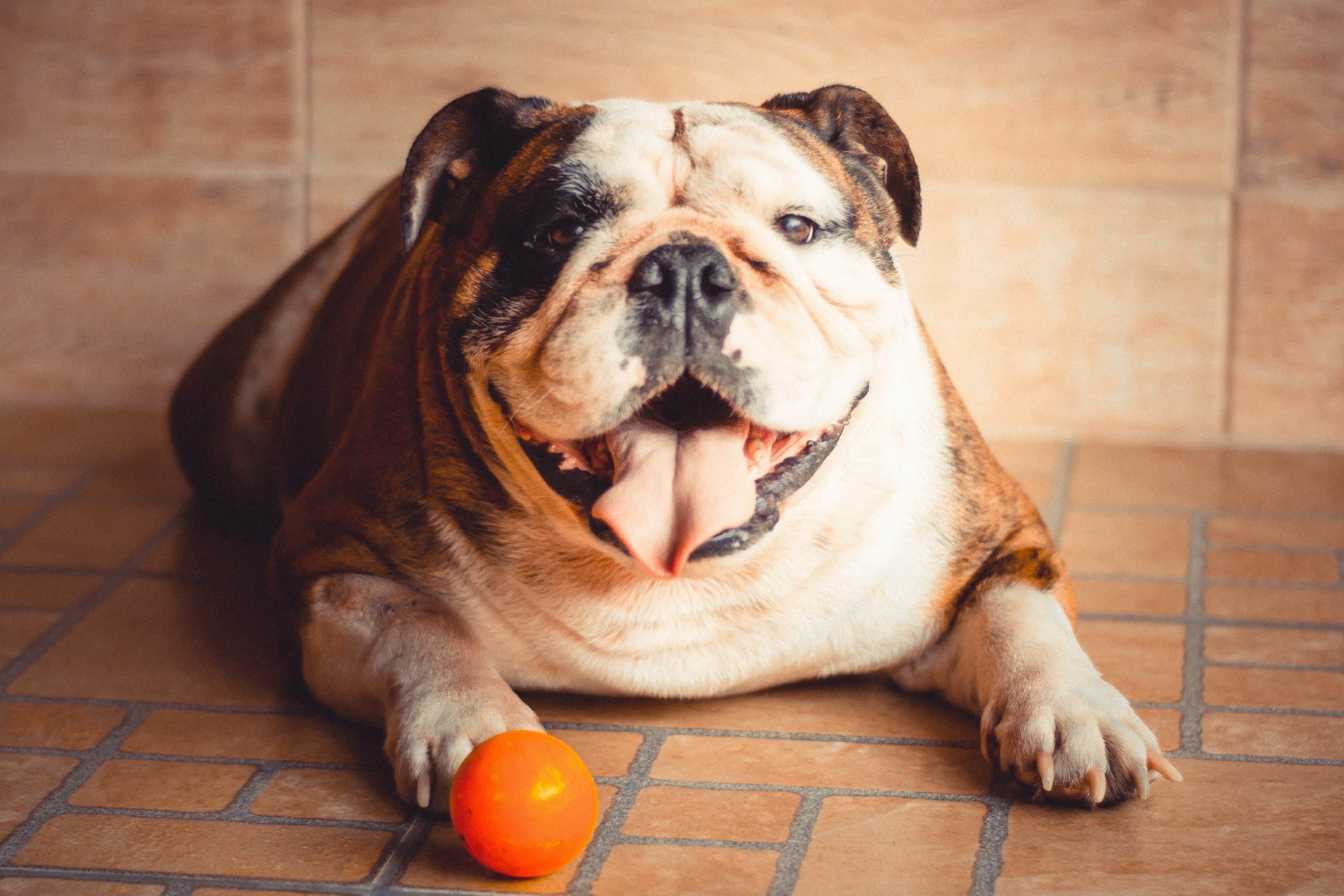
Signs and Symptoms of Dog Constipation
Awareness of the first signs of constipation can help you implement home care treatment quickly, so the episode does not worsen.
Early Indicators
The first signs you are going to see include:
- Smaller and harder poos
- Less frequent poos
- Straining and whining when passing poo
- Mucus or blood in the poo
Moderate to Severe Signs
As time goes on, your dog may start to show symptoms of discomfort and may start to act unwell. You may notice:
- Abdominal bloating
- Lethargy
- A reduced appetite
- Excessive grooming of the back end
- Vomiting
Red Flags Requiring Immediate Vet Care
Though early and mild constipation can usually be addressed from home, there are times when you will need to have your dog seen right away.
Call the emergency vet if your dog is constantly straining but producing nothing at all, they are distressed, or you suspect they have an intestinal blockage.
At-Home Remedies for Dog Constipation
Thankfully, mild constipation can usually be easily remedied at home. The sooner you start treatment, the greater the chance of it working.
Hydration Strategies
Hydration is key to getting the gut moving and the stool lubricated. This can include offering wet rather than dry food, adding water to meals, and giving rehydration solution or dog broth alongside their water.
It is a good idea to have several ‘watering stations’ around the home, and if the weather is warm, you can also offer some ice cubes or dog-safe ice lollies.
Dietary Adjustments
Stick to a good diet with whole ingredients that your dog tolerates well. The fibre content should be about 2-4%. You can also top your dog’s food with sugar free bran or mashed pumpkin, if they are prone to constipation or anal gland issues.
Safe Over-the-Counter Aids
If your dog is coping well, your veterinarian may be happy to help you try a laxative at home. One option we often turn to is Lactulose, which humans also use. Please consult your vet before considering a laxative, as it will not be appropriate for every patient.
Physical Activity and Massage
Regular walking and playing stimulate gut movement and digestion, moving the stool along to pass more easily. They also make obesity less likely. Excess weight can affect a dog's posture and make it harder for it to pass poo physically.
Gentle belly massage may help a little, but it should be avoided if it causes distress or discomfort to the dog. You want to apply light pressure using your fingertips, moving in circular and clockwise patterns for a few minutes.
What NOT to Do
Never be tempted to give your dog an enema at home; this should only be done under medical supervision.
You should also avoid giving milk. While it can soften the stool, it is poorly tolerated and may lead to further signs, such as gastroenteritis, gas, and abdominal cramps.
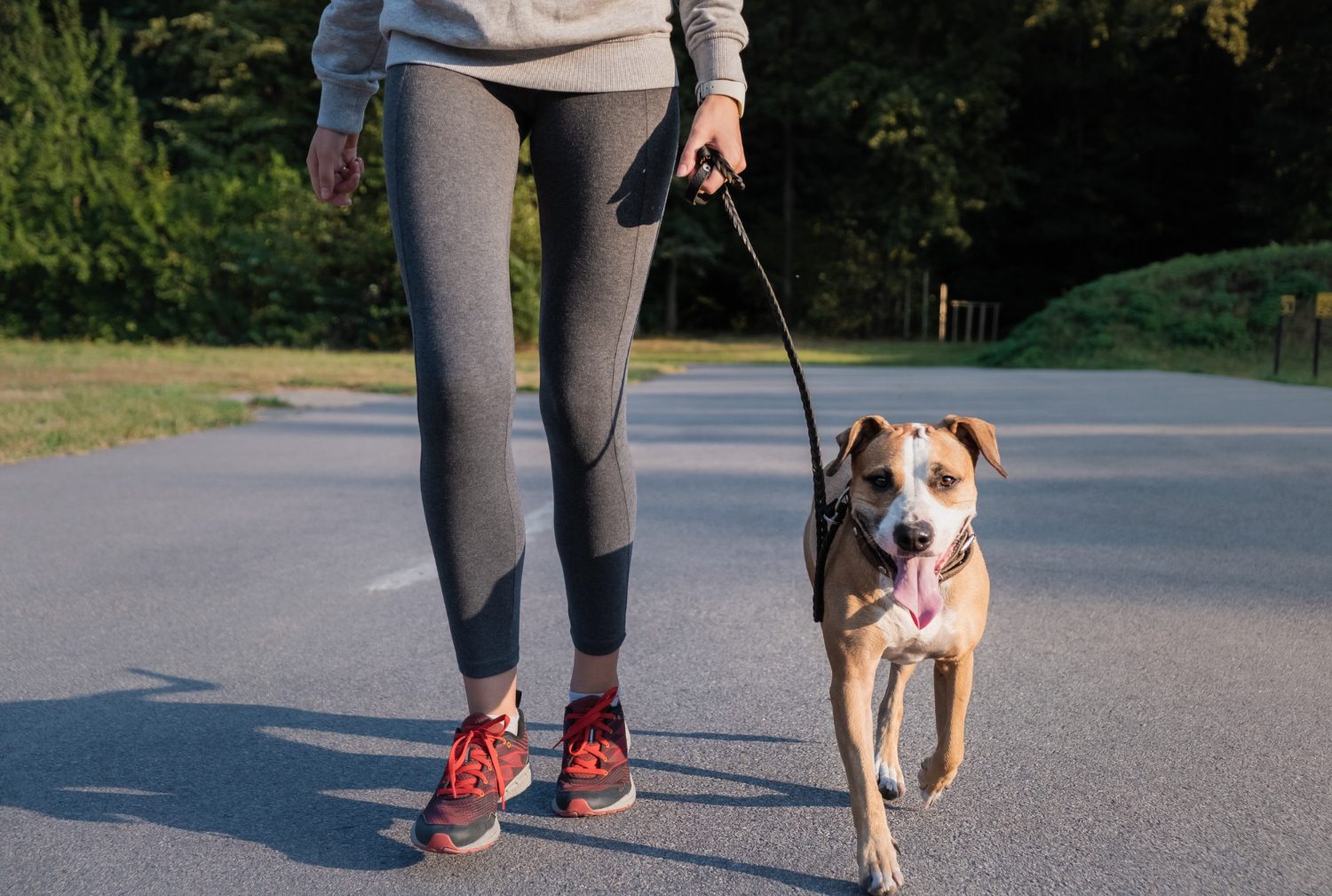
When to Call Your Veterinarian
Call your nearest clinic if you feel your dog’s signs are not quickly resolving, or they’re not coping well or in pain.
If your dog is showing signs of a blockage, call your vet right away. In addition to constipation, your dog may be off its food, sleepy, and unable to eat or drink anything without vomiting.
Time Frames and Severity
Constipation that lasts more than a day or two should be looked into. Similarly, if your dog’s signs are moderate or severe, have them checked over in person as they are likely in discomfort and need assistance.
Preparing for the Vet Visit
It is good to note when your dog has passed stool and what it looks like. Try to remember what they have recently eaten, and consider whether they may have gotten to anything they shouldn’t have.
Vet Diagnosis and Treatment for Dog Constipation
Your vet will initially take a medical history and then check your dog over. This will include assessing its hydration, feeling its abdomen, and performing a rectal exam.
Diagnostic Tests
Some patients undergo testing, such as abdominal imaging, to check for a blockage or gas buildup. If your vet is suspicious of other underlying medical issues, they may also recommend further tests, such as blood and urine tests.
In-Clinic Treatments
If required, your vet will immediately treat the constipation in the clinic. This may include intravenous fluids, oral laxatives, and enemas.
Hospitalisation and Monitoring
If your pet is unwell or your vet is struggling to resolve the issue, they may be kept in the clinic and monitored while their treatment is given. Similarly, those with an obstruction will need surgery to remove the blockage and will likely be hospitalised for several days.
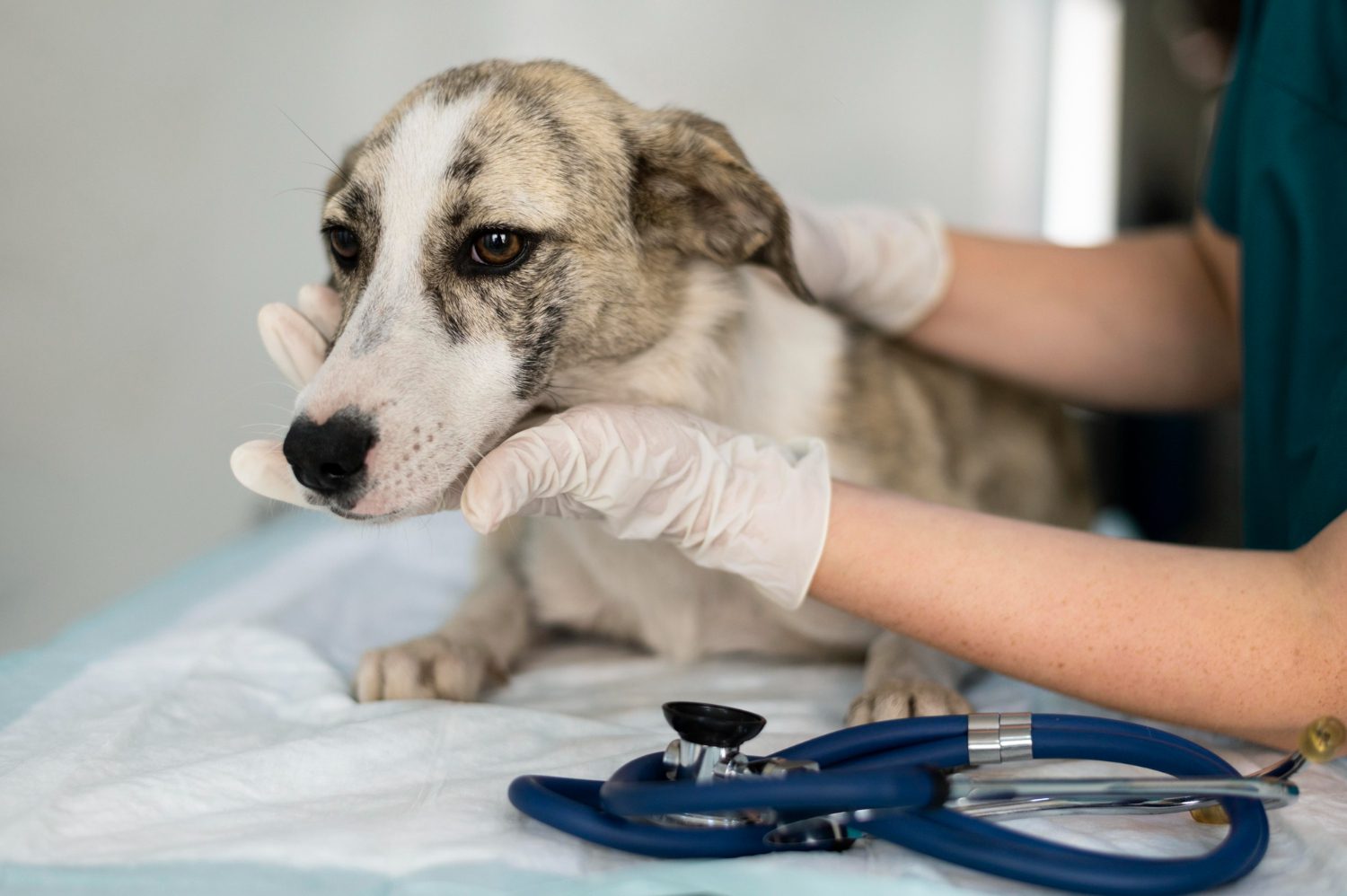
Complications of Untreated Constipation
Very rarely do we see serious complications of constipation in dogs.
Megacolon
Megacolon is much rarer in dogs than in cats. It occurs when the colon stretches beyond normal limits and does not return to its regular size.
Rectal Prolapse
The rectum may prolapse beyond the anus, making it visible. This is more commonly seen in those who have been straining for a prolonged period.
Prevention Strategies for Dog Constipation
If you know your dog is prone to getting bunged up, there are things you can do to help.
Balanced Diet and Fibre
As mentioned, be sure they are getting fed an appropriate fibre-rich diet each day. Avoid foods that are hard to digest, such as dairy, pig’s ears, bones and processed foods.
High-fat foods are not likely to cause constipation, but can lead to pancreatitis, which is a potentially life-threatening condition in dogs.
Hydration Habits
Encourage regular drinking and choose wet over dry dog food. Older or unwell dogs are more prone to dehydration, and we should pay special attention to a dog’s hydration when the weather is warm.
Regular Exercise
Get that bowel moving with a couple of walks a day and plenty of play time. Even senior dogs benefit from daily movement.
Parasite Prevention
Keeping your dog up to date with their wormer, particularly your puppy, can prevent parasite-related diarrhoea and constipation. Keep in mind that any over-the-counter product will not prevent lungworm.
Medication Review
If your dog is on medicine and suffers from constipation as a direct consequence, discuss with your vet if the dose could be lowered or if there is an appropriate alternative.
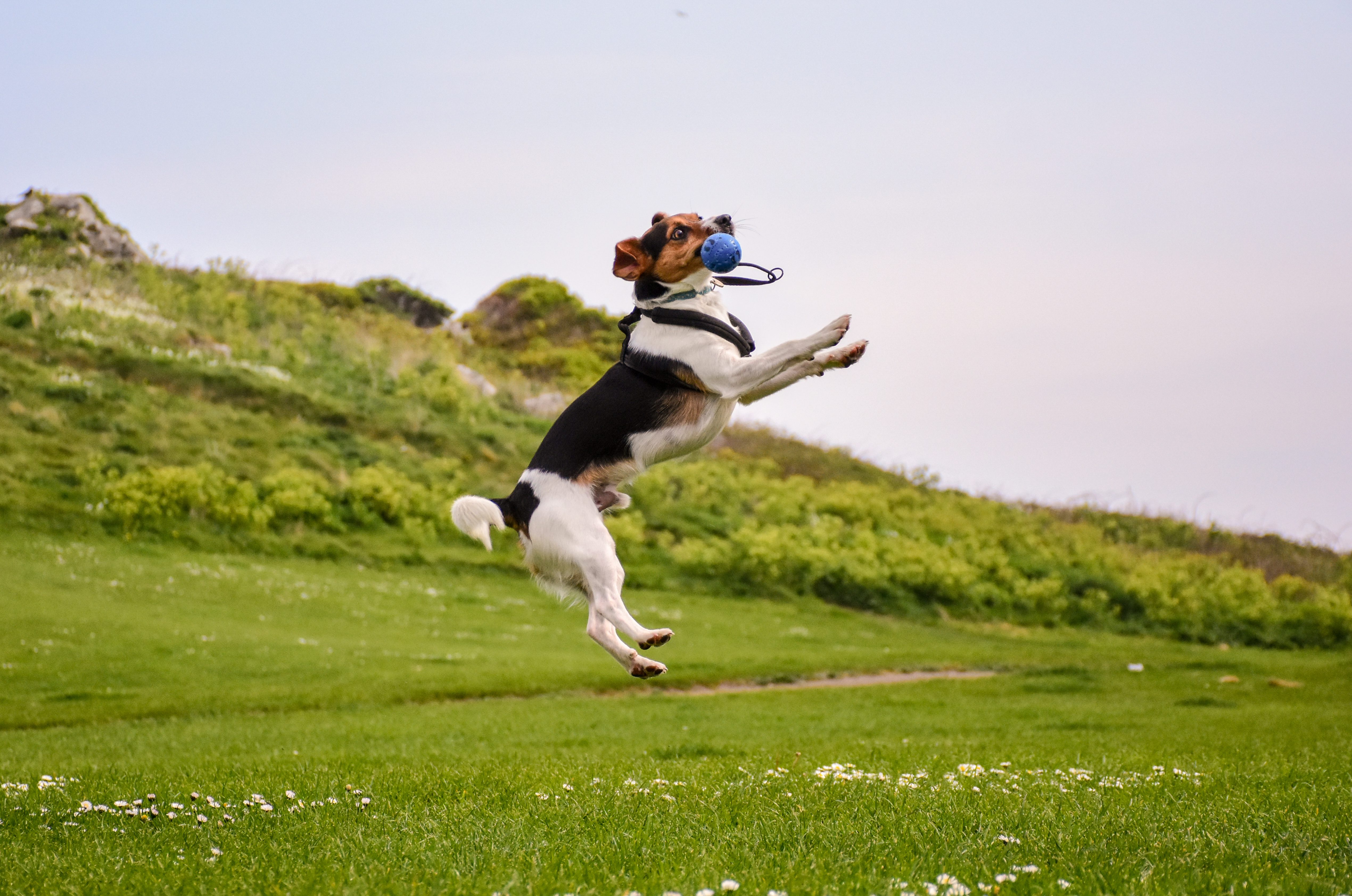
Learn More About Dog Constipation
If you still have questions about constipation or want to chat about your dog more specifically, we are here for you. Contact us at any time, and our trained staff will be able to answer your queries.
Dog Constipation FAQs
Can stress cause constipation?
Stress can have a profound effect on the canine digestive system, leading to a change in appetite and a slower gut transit time. Prolonged or severe stress, as well as poor health, can certainly play a role in constipation.
How often should a dog poop?
Every dog is different, and you likely already know your pet’s ‘normal’. For most adult dogs, they pass a solid poo once or twice a day.
Does breed affect bowel health?
Yes, certain breeds are more prone to bowel and digestive issues. German Shepherds and Boxers, for example, are genetically prone to Inflammatory Bowel Disease.
Continue reading

Rabbit Haemorrhagic Disease (RHD): What to Do
Learn what Rabbit Haemorrhagic Disease is, the symptoms to watch for, and what to do next.
Read article
Dog Back Pain: Symptoms and Treatment
Discover the symptoms, causes, and treatments of dog back pain and when to see a vet.
Read article
What is the Best Pain Relief for Dogs?
Explore safe pain relief options for dogs, including treatments, signs, and vet guidance.
Read article